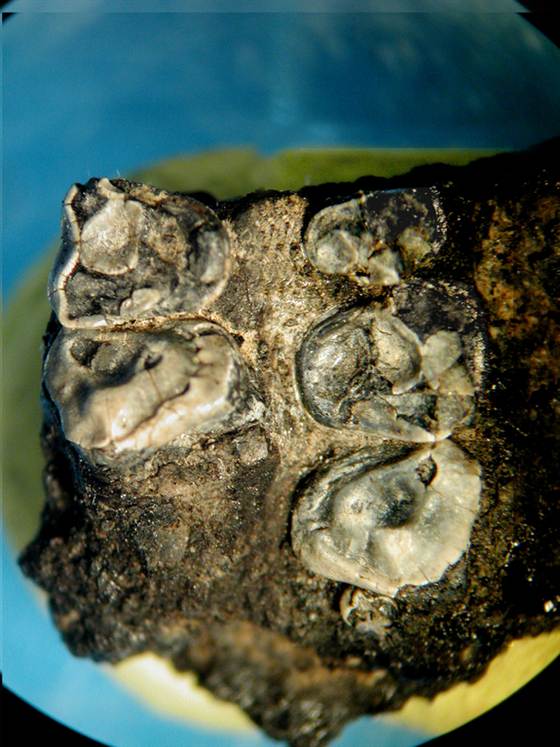
“The fossilized jaw of a pint-size primate that lived about 35 million years ago in Asia has been unearthed in Thai coal mines.
The new species, dubbed Krabia minuta, after the Krabi coal mines where it was found, was an ancient, extinct member of a group of primates called anthropoids, which includes the ancestors to all monkeys and apes, including humans. Even so, the creature showed peculiar features, including its distinct molars, not seen in other members of this primate group.
The tiny primate emerged during a mysterious period when primates somehow moved across a vast sea from Asia to Africa. [See Images of the Pint-Sized Primate Fossils]
“The Asian anthropoids were probably more diversified than what we know today and also probably played a more important role in the origin of the modern crown anthropoids than we suspected,” said study co-author Jean-Jacques Jaeger, a paleontologist at the Université de Poitiers in France.
Simian evolution
Though humans came from Africa, anthropoids, precursors to monkeys and humans, likely emerged from Asia. Fossil anthropoids have been found in China dating to 45 million years ago and in Southeast Asia as far back as 40 million years, yet similar species only appear in Libya in Africa around 38 million years ago.
Scientists have been perplexed by how these ancient simians made it out of Asia to Africa — an impressive journey considering that, at the time, Africa was separated from Asia by the Tethys Sea, which was bigger than the Mediterranean Sea, said Christopher Beard, a vertebrate paleontologist at the Carnegie Museum of Natural History in Pittsburgh, who was not involved in the study…”
read the rest HERE
"Asia Fossil", "primate fossil", fossils
Comments RSS Feed